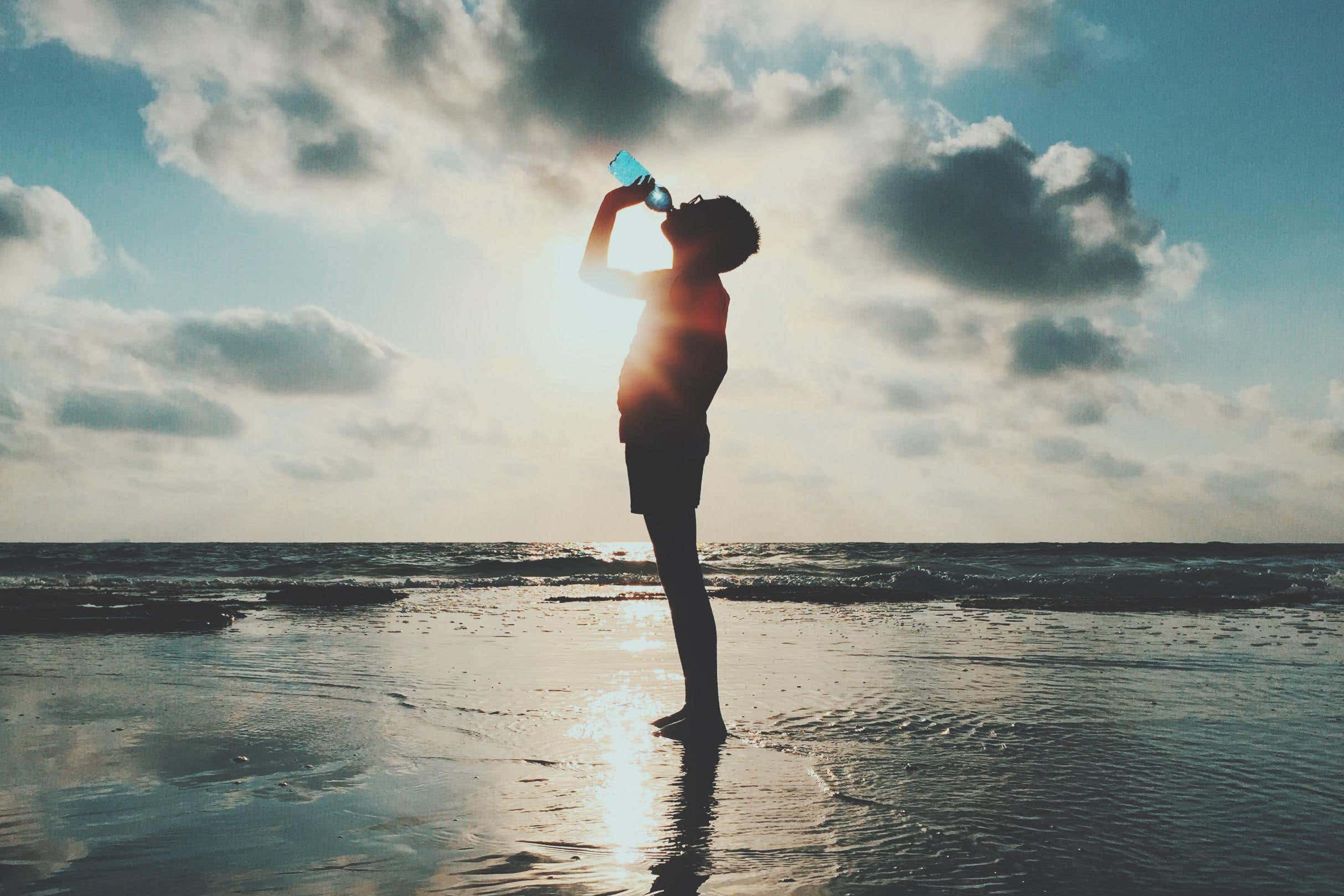3 signs you’re drinking too much water
Imy Brighty-Potts asks an expert how to know if we are too hydrated – and why the right balance matters.

We’re often told to drink eight glasses of water a day – but this might not actually be the magic number.
Research from the University of Aberdeen published this week suggests the recommended intake of two litres of water a day doesn’t actually match our actual needs – and in many situations is too high.
Given around half of our daily intake of water comes from food, scientists estimate we only really need around 1.5 to 1.8 litres per day.
That doesn’t mean you should stop hydrating entirely. “Our bodies need water for a whole host of essential functions,” says Dr Bryony Henderson, lead GP from online health service, Livi (livi.co.uk).
“Water carries nutrients to the cells and transports the waste away, and it cushions and lubricates the brain and the joints. Through perspiration, it also helps to regulate the body’s temperature.”
Being dehydrated – when the body loses more water than it takes in – “Can have an impact on almost every part of our body”, suggests Henderson. “Even mild dehydration can affect our ability to concentrate. It can lead to headaches, extreme tiredness and constipation.”
So how can you know when you need water? “Thirst is the best rule of thumb symptom in day-to-day life,” says Henderson. “However, by the time you feel thirsty, you might already be dehydrated.”
She recommends eating fruit and veg rich with water, and having easy access to a water bottle – especially if you are someone “who frequently exercises, particularly in hot weather, or who commonly worries about not drinking enough water”. See your GP if you have any concerns or queries.
It’s clear we need water to function – but how can you tell if you’re drinking too much?
1. Urinating more, but not actually getting rid of all the water
“Increased water intake means you’re drinking too much water for your kidneys to process through urinating, which can cause water buildup in your bloodstream,” explains Henderson.
This might mean you’re not flushing out unwanted waste products, causing you to feel unwell.
2. Water retention
If you feel puffy – as though your skin is highly reactive – or feel as though you are gaining weight rapidly, you may be retaining water.
“Retaining water occurs when your body physically can’t get rid of the water, which can be a result of major health conditions. Both are equally as dangerous, as it disturbs the balance between the sodium and water in your blood,” Henderson says.
3. Low salt levels
Drinking too much H20 “can cause water intoxication, which is when your salt levels and your electrolyte levels become too diluted”, explains Henderson.
Not having enough salt in the body can lead to nausea, vomiting, muscle weakness and irritability.
“If untreated, [water intoxication] can lead to a condition called ‘hyponatremia’, which means your salt or sodium levels have become dangerously low. If these levels drop too low at a rapid pace, it can be dangerous, and in rare cases cause death.”
Bookmark popover
Removed from bookmarks